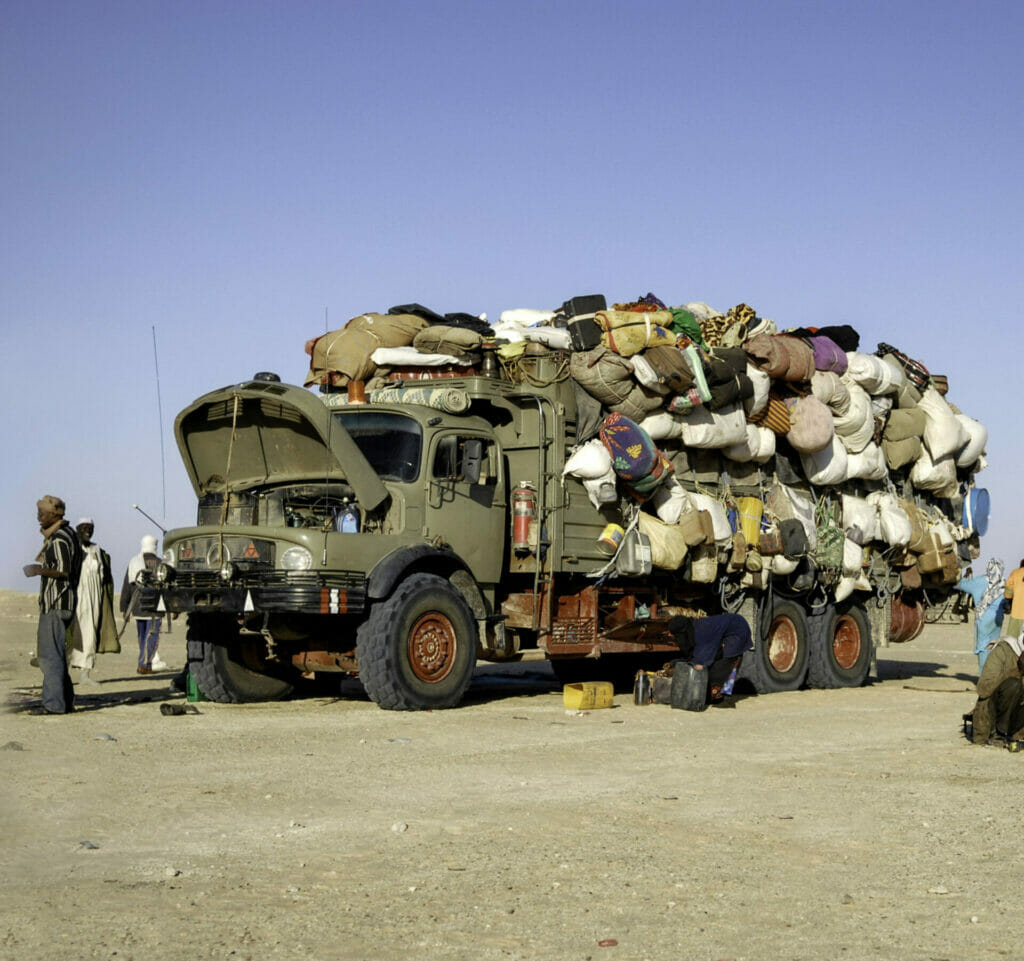By Program

Living in a Changing Climate: Dynamics of Forced Migration & Displacement
January 17, 2023 | 12:15 - 1:30 pm | SRH 3.122, LBJ School
On Tuesday, January 17, the Strauss Center hosted Amali Tower, Founder and Executive Director of Climate Refugees, for a talk on “Living in a Changing Climate: Dynamics of Forced Migration & Displacement.” This talk was held at the LBJ School of Public Affairs as part of the Strauss Center’s Brumley Speaker Series.

“We have over 100 million forcibly displaced people today – That’s one-third of the global population,” Tower started, describing how climate change is driving displacement and forced migration around the world. She specified that countries in the Global South, which are also some of the most vulnerable to climate change and its effects, host over 86% of the world’s forcibly displaced persons.

Tower broke this information down further, noting that “Women make up 80% of climate refugees when women already suffer discrimination across the world, and 90% of refugees come from countries that are climate vulnerable, yet climate migration is not a recognized driver to leave your country.” She recalled these statistics and immediately humanized them, describing that it was women refugees who informed her eight years ago of how much climate change was playing a role in their ability to feed their families and that returning home was no longer an option.

Several highlights of her talk included drawing the connection between the growing humanitarian crisis at the Texas-Mexico border with climate change. She emphasized that there is “no border crisis” but that what we have instead is the result of prioritizing border security over human security. She explained that as the world’s largest emitter of greenhouse gases, the United States bears the most responsibility for addressing the impacts of climate change. Yet, that instead of providing financing, countries in the Global North have instead militarized their borders. According to Tower, it’s “because Central America is highly climate-vulnerable, producing internal displacement and driving migration to the U.S. It’s happening because we’re letting it. We are perpetuating these crises.” She continued, “Border militarization has become a type of climate policy. It is a way to adapt and stop people from coming.”

She challenged the audience by describing the plight of climate migrants looking for better opportunities when their homes have been taken by climate change, asking “Why do you or I have more of a right to development than a person across the border? That’s the question you need to ask yourself.”

Tower concluded her presentation by highlighting signs of hope, specifically the Loss and Damage Fund, recently adopted by the United Nations Climate Conference (CoP 27), which will provide funding for vulnerable countries most affected by climate change.

She wrapped her talk with a call to action: “Revolutionary change must be bold and creative. What kind of world do we want?” she asked, engaging the audience’s imaginations to conceive innovative ways to use funds to address the impacts of climate change. “Imagine if we could use this money to help people while investing in food security, agriculture, healthcare, and education. Let’s imagine a world where access is based on need, not loans. Let’s imagine a world where access to funding is based on defending human rights. These are the rights at the center of the climate crisis that we must all fight.”

This event was free and open to the public. Special thanks to Brumley Fellow Daniela Garcia for moderating.

For more information on this event, contact Brittany Horton at [email protected].
Biography
Amali is the Founder and Executive Director of Climate Refugees. She has extensive global experience in refugee protection, refugee resettlement, and in forced migration and displacement contexts, having worked globally for numerous NGOs, the UN Refugee Agency, and the US Refugee Admissions Program. Years of interviewing refugees fleeing conflict afforded her the chance to hear their stories of also fleeing climate change, and through this, Climate Refugees was born.
She has conducted country and regional case studies and research in climate-induced displacement contexts, including in urban and camp settings. Her research on climate, conflict, and displacement in the Lake Chad Basin in Africa’s Sahel was presented as evidence of loss and damage in COP 26 in Glasgow.
Amali is a member of the World Economic Forum Expert Network in Migration, Human Rights & Humanitarian Response, the UC Berkeley Center on Comparative Equality & Anti-Discrimination Law (climate refugees & immigrant justice working group). She sits on the advisory board of The Center for Climate and Security in Washington, DC.
From being asked to respond to Afghan evacuations to overseeing UNHCR operations for Syrian resettlement to the United States, Amali is frequently consulted for her expertise, including in rapid deployments, humanitarian and high-profile contexts. She also frequently consults in areas of human rights, campaigning, advocacy, legislation and public policy. Amali serves displaced populations as an experienced defender and her clients as a partner and advisor. She developed her work ethic, world views and deep commitment to forcibly displaced populations through a lived experience of instability, and as an immigrant and migrant. She’s born of that education, life in multiple countries, and also those at Columbia University, where she has a Master of International Affairs focused in Human Rights from the School of International and Public Affairs, and a BA in International Development Studies from UCLA. She resides in New York City.


